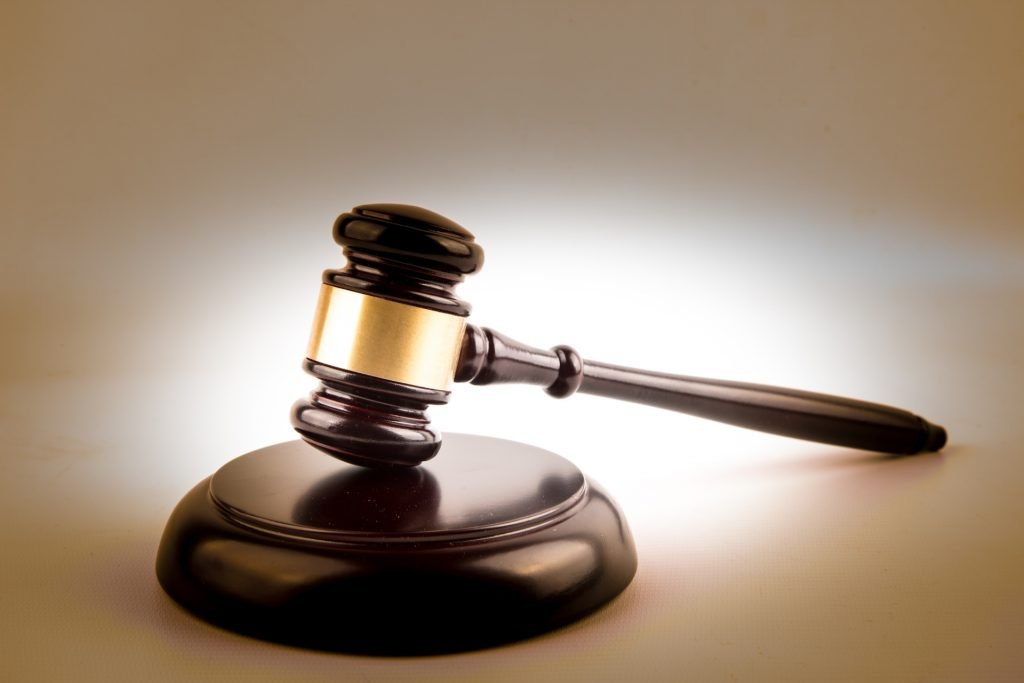CAL pilot, wife freed in 'baby sale' case

A Caribbean Airlines pilot, his wife, an attorney and a Spanish tutor were on Thursday freed by a magistrate in the Tunapuna Court of illegal adoption charges.
Magistrate Wendy Dougdeen-Bally discharged the four – Caribbean Airlines pilot Patrick Borel, his wife Daniela Parainello, attorney Kijana Da Silva and UWI tutor Adrianna Ragbir after she upheld no case submissions advanced by their respective attorneys at the close of the prosecution’s case.
Da Silva was represented by a team of attorneys which included Senior Counsel Sophia Chote, Keith Scotland, Sparkle Kirk and Jenna Mapp. The couple was represented by attorney Sean Cazabon while attorney Subhas Panday represented Ragbir.
In her ruling, Dougdeen-Bally agreed with the attorneys that the prosecution’s evidence was manifestly unreliable and failed to prove the essential evidence of the offence.
In 2019, Port of Spain attorney Annabelle Sooklal, who was also charged with the others, was freed of a charge of arranging an unlawful adoption of a baby, after the Director of Public Prosecutions had filed a notice of discontinuance in Sooklal’s matter.
Sooklal and the four others had been separately charged in December 2018, for breaching section 9:2 of the Adoption Act of 2000 by taking part in the arrangement of the adoption of the baby sometime between July 31 and September 30, 2018, although they were not members of the Children Authority, the only agency authorised to make arrangements for the adoption of children.
That section of the Adoption Act states: "For the purposes of this act, a person who participates in the organisation of an adoption or in the management or control of a child body of persons other than the Board (of the Children's Authority) that exists totally or partially for the purpose of making arrangements for the adoption of children is responsible for a summary sentence to a fine of $ 10,000 or imprisonment for two years."
The arrest of the five came after several months of investigation, which began in early October 2018.
The baby's mother, a Venezuelan, who gave birth in September that year, alleged she was coerced into selling her baby for US $20,000.
She also alleged she was advised to return to Venezuela because she had overstayed her time. However, the young mother went to the Trinidad and Tobago consulate in Venezuela and reported she had been tricked into abandoning her baby and wanted to meet him.
She returned to TT and gave information to the anti-trafficking and child protection units and the couple was put under surveillance. They were eventually arrested along with the two lawyers and the Spanish tutor.
After the couple was charged with illegally buying the baby, the infant was taken from them and placed under the care of the Children's Authority.
Newsday understands the boy was eventually returned to his biological mother sometime after the court proceedings began in the Tunapuna Magistrates’ Court.
There was a separate custody case in the Children’s Court involving the biological mother who sought custody of her child.
At the preliminary inquiry involving the pilot and the others, the child’s Venezuelan mother testified for the State from one of the Judiciary’s virtual access customer centres last week.
The alleged illegal adoption also drew the attention of the Inter-American Commission on Human Rights (IACHR) which appealed to the Government to protect the interests of the infant.
In December 2019, the IACHR decided to grant precautionary measures in favour of the child, "considering that he is at serious risk after being separated from his mother – a victim of trafficking in persons in TT," according to resolution 59/2019, issued on December 9. The IACHR's resolution is not legally binding on the courts of TT.
The IACHR urged the government to take all necessary measures to protect the interests of the infant.
At the time, it said, “Family separation must be temporary in any case, since each state must take measures to guarantee family reunification, as well as the possibility of establishing a visitation regime to maintain family ties with their mother.”
The Washington-based IACHR asked the government to preserve the family relationship and ensure the well-being of the child.
At the time, the child was in the custody of the authority.
The resolution also said the IACHR had asked for information from TT on October 29, but did not get a response.
Simón Gómez, a Venezuelan lawyer in charge of taking the case to the IACHR, explained to Newsday by phone that this precautionary measure was a mechanism for the protection of fundamental human rights.
“The lack of contact of the child with his mother is a risk to his physical and psychological integrity,” said the lawyer back in 2019.
The human rights organisation Defiende Venezuela had also asked the IACHR to help the mother.


Comments
"CAL pilot, wife freed in ‘baby sale’ case"